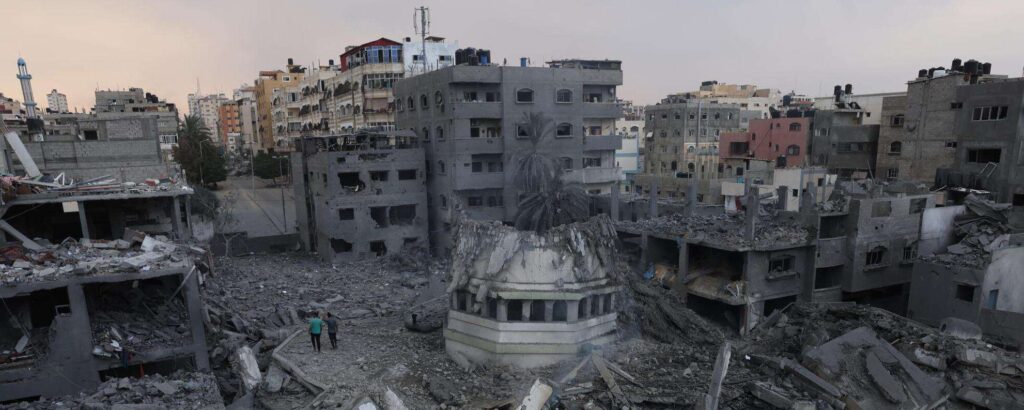
MSF calls on all parties to the conflict to ensure the safety of civilians and medical facilities.
Early Saturday morning, October 7, the Palestinian militant group Hamas launched a major attack on various sites in Israel, including civilian gatherings and villages, firing rockets on multiple cities and taking scores of hostages. The Israeli government declared war on Hamas and began a massive counteroffensive in Gaza, launching a barrage of air strikes.
As of October 10, nearly 2,000 people have been killed on both sides of the conflict, including more than 1,000 in Israel and more than 900 in Gaza, according to the AP and UNOCHA. Thousands have been wounded on both sides. The vast majority of people killed or wounded are civilians.
As an independent, impartial humanitarian organization, Doctors Without Borders/Médecins Sans Frontières (MSF) calls on all parties to the conflict to ensure the safety of civilians and medical facilities.
“The situation is horrific, with massive Israeli and Palestinian casualties,” said Matthias Kannes, MSF head of mission in Gaza. “Our Palestinian colleagues are working day and night to cope with the influx of wounded. Following today’s bombing in Al Jabalia refugee camp, our team treated more than 50 people in Al Awda hospital.”
Overcrowding and supply shortages in Gaza hospitals
MSF is donating medical supplies to hospitals and health facilities in Gaza to respond to medical needs. We do not run medical programs in Israel because it has strong emergency and health services, however we have offered support to Israeli hospitals treating casualties from the attacks. Since we currently only run programs in the Palestinian Territories, our reporting is rooted in the direct witnessing of our patients and staff on the ground there.
“Hospitals are overcrowded with injured people, there is a shortage of drugs and [medical supplies], and a shortage of fuel for generators,” said Ayman Al-Djaroucha, MSF deputy coordinator in Gaza.
A challenge facing medical staff in Gaza right now is the lack of safe ways to transfer patients to health facilities. “Ambulances can’t be used right now because they’re being hit by airstrikes,” said Darwin Diaz, MSF medical coordinator in Gaza.
Ambulance and hospital struck in Gaza
In fighting on October 7, Israeli forces struck Indonesian hospital and an ambulance in front of Nasser hospital, killing a nurse and an ambulance driver and injuring several others. MSF has supported Indonesian hospital and Nasser hospital in southern Gaza since 2021 and 2011, respectively.
MSF calls on all parties to the conflict to respect health infrastructure and workers. Health care facilities cannot become targets and hospitals must remain a sanctuary for people seeking care, MSF said.
MSF’s local staff are also providing surgical and inpatient care in Al-Awda hospital in northern Gaza. The hospital’s bed capacity was increased to its maximum of 26 beds in anticipation of an influx of patients.
“Stable patients are referred to us and we take care of them,” said Jean Pierre, MSF medical activity manager in Gaza. Pierre said that the medical teams are mostly treating gunshot wounds and injuries from shrapnel.
About MSF in the Palestinian Territories
MSF has been running medical programs in Gaza for more than 20 years, supporting a health care system that urgently lacks both medical personnel and supplies. Our teams work in three hospitals and several outpatient clinics, offering comprehensive care for people suffering from burns and trauma. Since 2018, MSF has been running a reconstructive surgery program in northern Gaza. We also operate several medical programs in the West Bank.
Since we currently only run programs in the Palestinian Territories, our reporting is rooted in the direct witnessing of our patients and staff on the ground there. As an independent, impartial humanitarian organization, we call on all parties to the conflict to ensure the safety of civilians and medical facilities.
